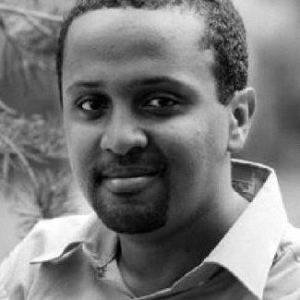In the many letters and articles I read about Sir John A. Macdonald from Canadians in the last week, on the occasion of what would have been the former prime minister’s 200th birthday, the one that stood out most for me was the letter written by a person named Mohamed el Haram.
This was in response to an article written by Macdonald’s biographer, Richard Gwyn, in The Toronto Star. The letter stated:
“Although it’s difficult, we must keep history in perspective and judge good and bad by their contemporary, contextual standards. Of course, we must strive to improve our society, keep the good, drop the bad and not make the same mistakes of history. To judge every historical figure, policy or event by modern mores would leave us with no one to respect and admire — only condemnation for all.”
In all of the 22 Canadian prime ministers we have had in our confederation, there is no one prime minster that has best defined us, united us, and envisioned the Canada that we know today as much as our very first PM. That is a fact. The double standard placed on him is both unfair and disingenuous.
If we were to place the same standard on other leaders of the past, the reality is that we might not have anyone to celebrate and emulate. Take Canada’s most admired former NDP leaders, Tommy Douglas.
Before he became one of the most influential politicians in Canada, he held some of the most horrible views on human reproduction. His graduate thesis at McMaster University linked poverty to “subnormal families, ones that are mentally inadequate — “anywhere from high-grade moron to mentally defective — of low moral character and/or a burden on the public purse.”
As a solution, he advocated for “sterilization of those deemed mentally defective or incurably diseased, arguing it is ‘consummate folly’ to let subnormal families “bring in to the world large numbers of individuals to fill our jails and mental institutions and to live upon charity.” If that fails, he offered a solution of “segregation of sub-normal families, and medical certification to ensure someone is mentally and physically fit before getting married.”
His words were not written as a high school student, to be excused as adolescent intellectual folly, but as a 28 year old soon-to-be politician on the verge of launching a political career with the Co-operative Commonwealth Federation (CCF), what would later on become the NDP.
However, again and again, Canadians have looked beyond those words and judged him based on his era, with his contemporaries, and gave much weight to his signature public service contribution as the father of Medicare. If we were to look at him by the standard we hold today, his reputation would not survive the scrutiny.
Sure, many of his defenders might argue the fact that his were mere words and Macdonald’s actions toward indigenous Canadians were actions, and that is true. However, it’s almost like defending the current actions of some male Dalhousie University dentistry school students, whose only alleged crimes, until now, have been writing sexually violent words on a Facebook group about their female classmates. By today’s standard, even inappropriate words that are hostile to others are grossly wrong. That is why those students are rightfully facing the consequences.
By today’s standard, both Macdonald and Douglas, would be considered wrong. So would many of Canada’s famous important icons of the past, such as the Famous Five who contributed to women’s rights in Canada but held controversial views on race and religion. Even the most successful Liberal Prime Minister, Sir Wilfrid Laurier, who once remarked “the people of Canada want to have a white country,” and strongly discouraged American blacks from immigrating to Canada would have been considered a fringe voice.
Yet, we celebrate their pre-eminent leadership roles in Canada’s past, try to understand their shortcomings, and judge them accordingly. In their lived lives, we attempt to find our own citizenship and find a role to have our country reflect the better part of our collective public ideals.
As the 200th birthday of Macdonald fell this week, I cannot help but reflect how much he meant for Canada and Canadians. He was the key architect of this nation, growing it from Upper and Lower Canada, New Brunswick, Nova Scotia, and then expanding it to British Columbia, the great Northwest Territories and PEI. His vision for a uniting railway that brought the new new nation together was inspiring, as were his views on the rightful status of our French-Canadian population. He defended the role of women in the new country and he now stands tall as our first prime minister, among the 21 others that would follow.
When it seemed Quebec was about to separate from Canada in 1995, former U.S. President Bill Clinton said “In a world darkened by ethnic conflicts that tear nations apart, Canada stands as a model of how people of different cultures can live and work together in peace, prosperity, and mutual respect.”
That model is still the envy of a brutal and even dangerous world. It is indeed thanks to the vision and foundation laid by Canada’s remarkable first prime minister.
 Leaders and Legacies Canadian leaders and leadership stories
Leaders and Legacies Canadian leaders and leadership stories

